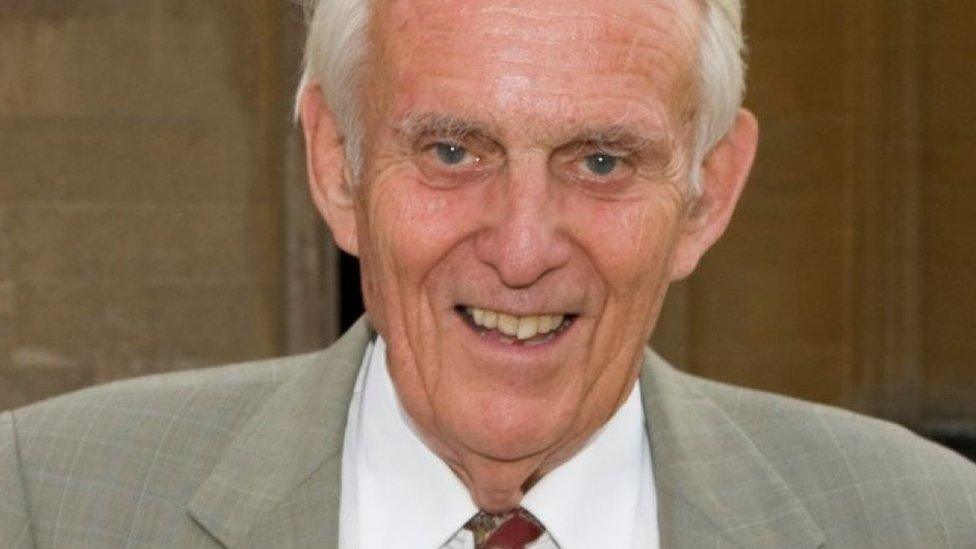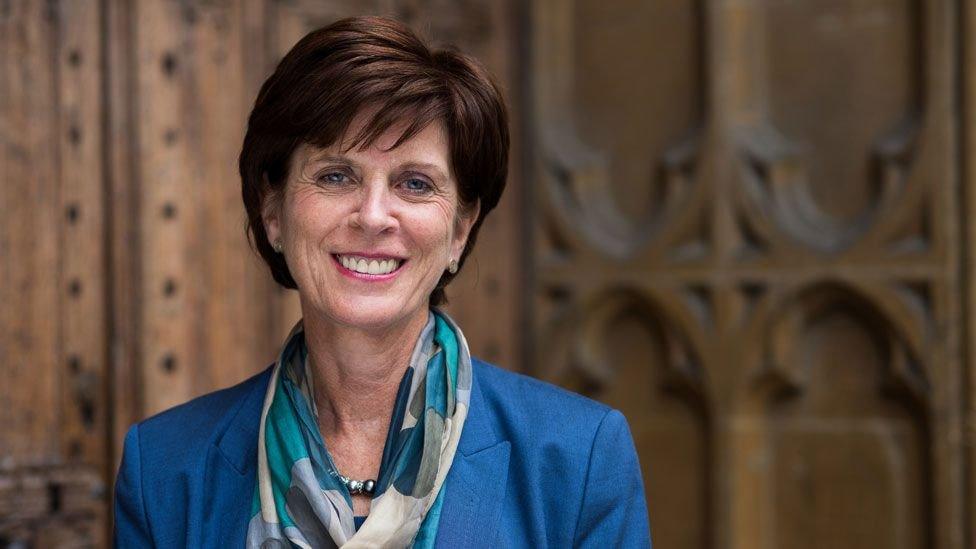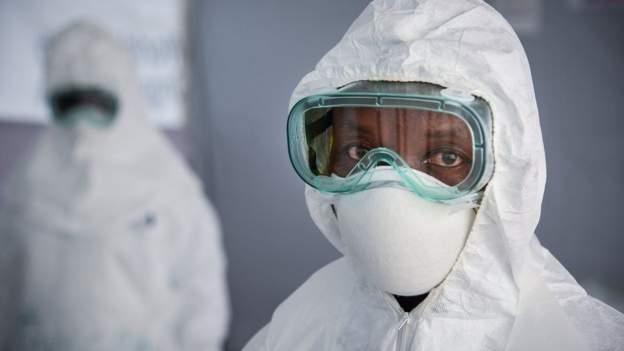Sir Martin Wood: Tributes paid to pioneering scientist
- Published

Sir Martin is being remembered for "ground-breaking developments" that "saved millions of lives"
Tributes have been paid to the man who oversaw the creation of the first commercial MRI whole-body scanner.
Sir Martin Wood made breakthroughs in the field of superconducting magnets in the 1950s and 1960s.
He started Oxford University's first successful spinout company, Oxford Instruments, external, from his garden shed with his wife Lady Audrey.
Prof Chas Bountra, pro-vice-chancellor for innovation, called him a "true pioneer" with an "incredible legacy".
Sir Martin, who was knighted in 1986 for his services to science, died at the age of 94 on 23 November after a short illness.
He joined the university in 1955 as a senior research officer in the Department of Physics, carrying out research on resistive high-field magnets.
'Towering figure'
The first commercial MRI whole-body scanner was produced at Oxford Instruments' factory at Osney Mead.
The company continues to supply scientific instruments to technology companies.
In a statement, it said: "Martin's brilliance, innovations and enthusiasm provided the foundation for ground-breaking developments that have saved millions of lives and transformed our understanding of chemistry.
"As a company we were fortunate to benefit from his vision and consider him as one of the great minds in scientific advancement."
Sir Tim Hitchens, president of Wolfson College, described him as a "towering figure", while Prof Sam Howison, head of the mathematical, physical and life sciences division, called him a "great man and a great friend to Oxford".
Earth Trust, The Oxford Trust, and Sylva Foundation, the sister charities founded by Sir Martin and his wife, called him a "visionary engineer".
"At our heart we inherited our founders' generosity of spirit and innovative approach to getting things done for science, people and nature," they said.

Follow BBC South on Facebook, external, Twitter, external, or Instagram, external. Send your story ideas to south.newsonline@bbc.co.uk, external.
Related topics
- Published18 November 2021

- Published11 November 2021
